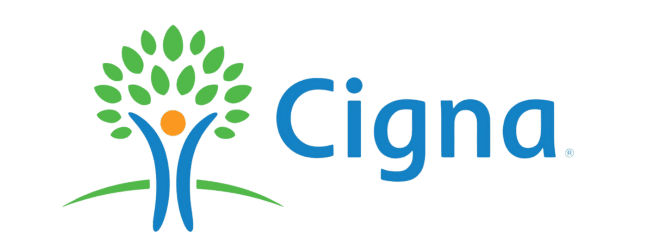When you’re working to manage mental health challenges or maintain recovery from addiction, relapse prevention isn’t just a strategy—it’s a lifeline. Understanding and implementing effective relapse prevention techniques can make a world of difference, not just in preventing setbacks but in enhancing overall mental health.
Essential Takeaways
- Relapse prevention techniques are crucial for managing mental health and addiction recovery. These strategies help build resilience, self-awareness, and emotional stability, supporting overall well-being.
- Incorporating relapse prevention into your daily routines can lead to significant improvements. Start with small, manageable practices and gradually build a routine. Consistency is key to experiencing the full benefits.
- Numerous resources are available to support your relapse prevention journey. Explore books, apps, and professional services to enhance your practice and stay committed to your recovery goals.
Let’s dive into how these techniques work, their benefits, and practical ways to incorporate them into your daily life.
Introduction to Relapse Prevention
What is Relapse Prevention?
Relapse prevention is a structured approach designed to help individuals avoid falling back into unhealthy behavior, especially in the context of addiction recovery and mental health management. At its core, relapse prevention involves recognizing triggers for relapse, managing cravings, and developing strategies to handle challenging situations that could lead to a relapse. But it’s not just about avoiding setbacks—it’s also about improving overall mental well-being.
Think of relapse prevention as your personal toolkit for navigating the ups and downs of life. It helps you build resilience, stay grounded, and make choices that support your mental health journey. Whether you’re in recovery from substance use disorders, managing a mental health condition, or supporting someone who is, relapse prevention techniques can be a game-changer.
The Connection Between Relapse Prevention and Mental Health
The link between relapse prevention and mental health is profound. When you actively engage in relapse prevention, you’re not only reducing the risk of falling back into unhealthy behaviors but also fostering a healthier mental state. Here’s how:
- Enhanced Self-Awareness: By identifying and understanding your relapse triggers, you become more aware of your thoughts and emotions. This self-awareness is crucial for managing mental health conditions like anxiety and depression.
- Emotional Stability: Techniques such as cognitive-behavioral therapy and mindfulness help you regulate your emotions, leading to greater stability and resilience.
- Improved Coping Skills: Developing effective coping mechanisms helps you handle stress and adversity, which can prevent emotional overwhelm and potential relapses.
In essence, relapse prevention supports mental health by equipping you with the tools to navigate challenges, maintain stability, and build a fulfilling life.
Effective Relapse Prevention Techniques
Cognitive-Behavioral Strategies
Cognitive-behavioral techniques are a cornerstone of relapse prevention. They involve identifying and changing negative thought patterns that contribute to risky behaviors. Here’s how you can apply these strategies:
- Recognize Negative Thought Patterns: Start by becoming aware of your automatic thoughts—those quick, often negative thoughts that pop up in response to situations. For example, if you’re feeling stressed, you might think, “I can’t handle this. I’ll never get better.” Recognizing these thoughts is the first step toward changing them.
- Challenge and Reframe Thoughts: Once you identify negative thoughts, challenge their validity. Ask yourself questions like, “Is this thought based on facts or assumptions?” and “What evidence do I have that contradicts this thought?” Replace negative thoughts with more balanced and realistic ones. For instance, instead of “I can’t handle this,” try “This is tough, but I’ve managed challenges before, and I can handle this too.”
- Practice Thought Stopping: When you catch yourself spiraling into negative thinking, use a technique called thought stopping. Say “stop” out loud or in your mind, and then redirect your focus to something positive or productive. This practice helps interrupt harmful thought patterns and promotes a more positive mindset.
Developing a Strong Support Network
A strong support network is invaluable in relapse prevention. Surrounding yourself with people who understand and support your journey can make a huge difference. Here’s how to build and maintain your support system:
- Identify Supportive Relationships: Look for supportive people who offer encouragement, understanding, and positivity. This might include family members, friends, mentors, or self-help groups. Having someone to talk to when you’re feeling overwhelmed or tempted can provide a significant boost.
- Communicate Your Needs: Be open about your needs and challenges. Let your support network know how they can help you. Whether it’s through regular check-ins, joining you for sober activities, or simply being a listening ear, clear communication helps ensure that you get the support you need.
- Join Support Groups: Consider joining a support group where you can connect with others facing similar challenges. Support groups provide a sense of community, shared experiences, and practical advice. Whether in-person or online, these groups can offer invaluable support and encouragement.
Building Coping Skills
Developing effective coping skills is crucial for managing stress and preventing relapse. Here are some key coping skills to consider:
- Stress Management: Learn techniques for managing stress, such as deep breathing exercises, progressive muscle relaxation, and mindfulness. Regular practice of these techniques can help reduce overall stress levels and improve your ability to handle difficult situations.
- Emotional Regulation: Work on regulating your emotions by practicing mindfulness and self-compassion. Mindfulness helps you stay present and observe your emotions without judgment, while self-compassion encourages you to treat yourself with kindness and understanding during challenging times.
- Problem-Solving Techniques: Develop problem-solving skills to address and resolve issues that may arise. Break problems down into manageable steps, brainstorm possible solutions, and evaluate the pros and cons of each option. Effective problem-solving can reduce feelings of helplessness and empower you to take positive action.
Establishing Healthy Routines
Creating and sticking to a healthy routine is an important aspect of relapse prevention. A structured routine provides stability and promotes well-being. Here’s how to establish one:
- Create a Balanced Schedule: Develop a daily schedule that includes time for self-care, work, and leisure activities. Ensure that you allocate time for activities that promote physical and mental health, such as regular exercise, hobbies, and relaxation.
- Incorporate Self-Care Practices: Make self-care a priority by incorporating practices such as regular exercise, healthy eating, and adequate sleep. Taking care of your physical health supports your mental well-being and reduces the risk of relapse.
- Stay Consistent: Consistency is key to maintaining a healthy routine. Try to stick to your schedule as closely as possible, but also be flexible and adjust as needed. Consistency helps create a sense of stability and predictability, which can be beneficial for mental health.
Setting and Achieving Goals
Goal-setting is a powerful tool in relapse prevention. Setting and working towards meaningful goals can boost motivation and provide a sense of accomplishment. Here’s how to effectively set and achieve goals:
- Set SMART Goals: Use the SMART criteria—Specific, Measurable, Achievable, Relevant, and Time-bound—to set clear and realistic goals. This approach ensures that your goals are well-defined and attainable, increasing your chances of success.
- Break Goals into Smaller Steps: Break your goals down into smaller, manageable steps. This makes them less overwhelming and allows you to track your progress. Celebrate small achievements along the way to stay motivated.
- Stay Accountable: Share your goals with a trusted friend, mentor, or therapist. Having someone to hold you accountable can increase your commitment to achieving your goals and provide support when challenges arise.
Conclusion: The Power of Relapse Prevention in Mental Health
Relapse prevention techniques are not just about avoiding setbacks—they’re about creating a foundation for lasting mental health and well-being. By incorporating these strategies into your daily life, you can build resilience, enhance self-awareness, and maintain stability on your journey to recovery.
Remember, relapse prevention is an ongoing process that requires dedication and practice. By understanding your triggers, developing effective coping skills, and building a strong support network, you can empower yourself to navigate challenges and achieve lasting mental health and well-being.
Embrace the journey, stay committed to your goals, and know that each step you take is a step towards a healthier, more fulfilling life.















